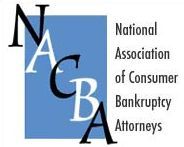Filing for bankruptcy is not a crime
Credit card companies wish it was, but it’s not. You cannot be arrested for filing for bankruptcy. You will not be frisked, cuffed, and thrown into debtor’s prison. Likewise, your home will not be searched. Occasionally, a chapter 7 trustee might want a neutral opinion as to the value of your house, if he/she suspects there might be more equity than you are permitted to protect. In that event, the trustee has a real estate agent make an appointment with you to look at the house, but not to search it.
The bankruptcy trustee finds out what you own by reading the schedules which you file, prepared by your attorney, listing your assets and their value. It’s not entirely done on the honor system, though, as you do sign under penalty of perjury that the schedules listing your assets, debts, and other financial information are true and correct to the best of your knowledge and belief. It would be a crime to conceal your assets from the trustee by not listing them, or to knowingly give the trustee false answers to any questions the trustee asks you. Telling the truth, both in the bankruptcy paperwork and as to questions asked by the trustee, is one of the most important rules to follow. Filing false bankruptcy schedules or lying to the trustee are federal crimes, prosecuted by the FBI. It’s also a good idea not to lie to your attorneys, because they can only advise you based on the information they have.
There are no valid reasons to conceal your assets, nor to lie to the trustee
Our attorneys at Seelinger Law carefully review your situation before recommending that you file for bankruptcy. We ask enough questions to satisfy ourselves that you are eligible for the form of bankruptcy we recommend, and to determine whether the value of your assets could be too high to protect them from being sold by a Chapter 7 trustee. Seelinger Law does not recommend filing a Chapter 7 bankruptcy case if the trustee will be able to take and sell your house or personal property against your wishes. You might be advised to file for Chapter 13 relief instead, as the Chapter 13 trustee does not take your property and sell it. The value of your assets does matter in chapter 13, but for a different reason: it can affect how much your unsecured creditors should be paid through your chapter 13 plan.
Seelinger Law’s attorneys will explain how your assets would affect your case before your bankruptcy is filed
Nobody likes surprises like finding out after a bankruptcy case is filed that a chapter 7 trustee can take their property from them, or that a chapter 13 trustee can require them to pay unsecured creditors because they have lots of equity. When Seelinger Law files a petition in bankruptcy for a client, the client knows what to expect before doing so.

